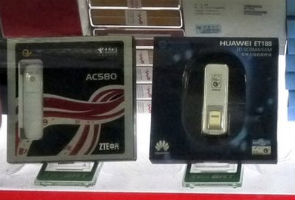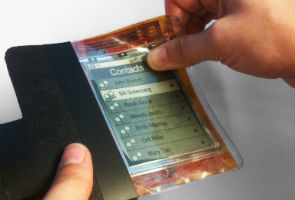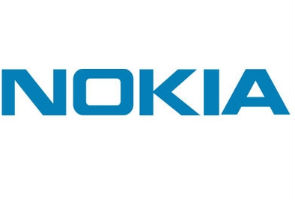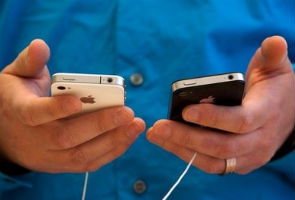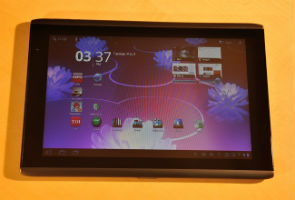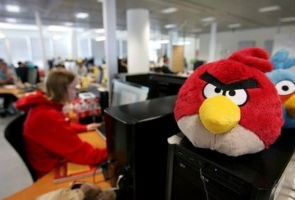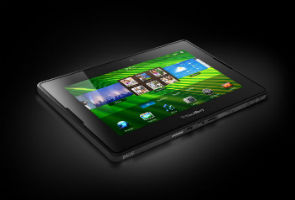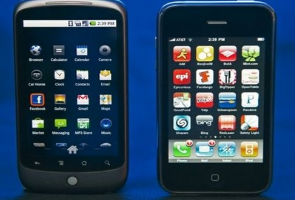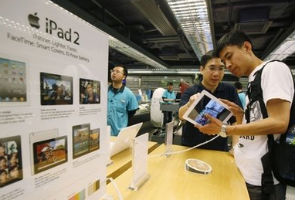Google is the new darling of software wizards out to cash-in on the
world's love for customizing smartphones with fun, hip or functional
applications.
Developers once obsessed with "apps" for Apple's
hot-selling iPhones are touting creations tailored for smartphones built
on the Google-backed Android platform.
"In the past seven
months, Android has become the de facto second platform out there that
people are developing for," AppNation chairman Drew Ianni told AFP
during the gathering of software entrepreneurs this week in San
Francisco.
"I think there is a general wait-and-see interest regarding platforms outside of Apple iOS and Android," he added.
Mobile platforms being watched by developers include BlackBerry, Microsoft Windows Phone 7 and Hewlett-Packard's webOS.
Ianni expected smartphones based on Microsoft or HP software to increase in allure as they gain traction in the market.
"We
need a third platform that is viable, otherwise it is going to be the
Android show," Urban Airship chief executive Scott Kveton said after
taking part in an AppNation panel.
"Android is growing at a phenomenal rate," he continued. "I'm afraid it is going to be Android running away with it."
Urban
Airship provides tools that help developers make money from smartphone
programs. Early in April the Oregon-based company added a feature
allowing people to make purchases inside Android applications.
"Increasingly,
people are finding it a good investment to build for Android and build
for tablets and we are trying to support them," Google director of
mobile Americas Jason Spero said after an on-stage chat at AppNation.
Android's
share of the US smartphone market has surged this year while
BlackBerry's sunk, according to recent figures from industry tracker
comScore.
Android commanded a third of the market, while
BlackBerry ranked second with 29 percent and Apple third with 25
percent, comScore reported.
"Almost everyone developing for
iPhone has moved on to Android," said Mario Tapia, director of mobile
products at application store GetJar and coordinator of a Mobile Mondays
social group for developers in Silicon Valley.
"At the end of the day, it is about distribution," he added. "You move to where the audience is."
Apple
had slightly more that 333,000 iPhone applications in its App Store in
March, but Google's Android Market boasted 206,000 "apps" and was
growing fast, according to figures from industry tracker Distimo.
"The
Android Market is going to take over as biggest application store in
terms of quantity of apps in about five months," Distimo researchers
concluded.
Distimo predicted that Apple's App Store would be
relegated to second place, followed by Windows Phone 7 Marketplace and
BlackBerry App World.
Windows Phone 7 Marketplace had about
12,000 applications in March while Nokia Ovi Store had 30,000 and
BlackBerry had 27,000, according to Distimo.
Distimo expected Windows 7 Marketplace to leap ahead of BlackBerry and Ovi by October.
"If
Apple has 150 million iOS devices out there it is almost a no-brainer,
you write for iOS," said analyst Tim Bajarin of Creative Strategies.
"You
see Android coming up the line, and that is almost a no-brainer," he
continued. "Where it becomes tougher is making the next step to go after
webOS or BlackBerry or whatever with limited money and talent."
Independent application operations typically have only a few, if not just one, software developer, according to Bajarin.
Finding ways to get noticed and make money in a sea of more than 600,000 smartphone applications were hot topics at AppNation.
Attendance
at the event grew to 1,700 this year from 1,100 at its premier in San
Francisco last year. The number of exhibitors grew to 210 from 80.
Opera
Mobile Store that spans more than 200 countries launched an
"Appcelerator" program at AppNation to help developers promote and
profit from software creations.
"The apps here are great," said
Opera Software consumer mobile executive vice president Mahi de Silva.
"You are seeing the tip of the iceberg in innovation."
Advertisers are increasingly tuning into the potential to target consumers on smartphones and tablet computers.
"There
is no question that ultimately, this is probably the most powerful
vehicle for ads that we've ever had," Bajarin said. "Television was
obviously significant but if I can do location-based services tied to
ads this changes the dynamics of advertising completely."
Mobile
ads are more effective for advertisers and can translate into more money
for developers, according to Lisa Abramson, director of marketing at
mobile video ad network Rhythm New Media.
"Consumers love free and the best way to monetize that is through advertising," Abramson said.
Developers can also make money from in-application transactions, selling virtual goods, or simply charging for software.
"It
becomes a collage of monetization mechanisms," Spero said. "Each
developer has to be an expert on what their audience has a tolerance
for."
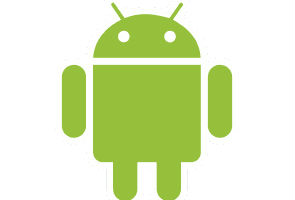 According to latest reports, the Android app store will overtake the Apple app store by August 2011, provided the current growth rate is maintained. In April 2011, the Android market place added 28,000 apps to its app store as opposed to Apple's 11,000 apps.
According to latest reports, the Android app store will overtake the Apple app store by August 2011, provided the current growth rate is maintained. In April 2011, the Android market place added 28,000 apps to its app store as opposed to Apple's 11,000 apps.